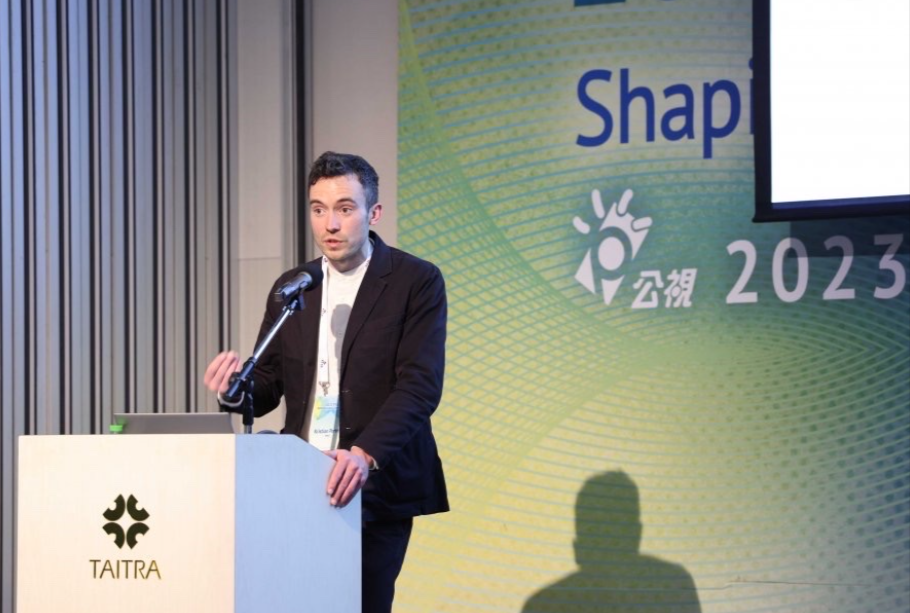In a speech at the PTS Symposium 2023 held in Taipei, Taiwan, in May, Kristian Porter – the CEO of the Public Media Alliance (PMA) spoke about how public service media (PSM) can and should maintain their values while adapting to the digital era.
PMA is the largest global association of public media organisations, of which PTS and Radio Taiwan International are members.
He started by noting that public service media, faces its fair share of challenges regarding digital transformation, which include: keeping pace with new technology; audience fragmentation and changing news consumption habits; adapting to ever-evolving and commercially-owned algorithms; a lack of transparency over these algorithms; hate speech and online harassment; AI; data use; mis- and disinformation.
He said that public service media now reach most of their audiences through cross-platform services but they must also ensure that they don’t lose sight of their core values.
“Accountability, accessibility, impartiality, independence, pluralism, reliability, universalism: these are the values which we at the Public Media Alliance consider to be most important to PSM.”
“Together these contribute to the trust the public has in you. But adhering to these values in the digital world means that public media also need to be open to a rapid change of direction if needed… and to accept that things can change very quickly, especially when using third-party platforms to reach audiences,” he said.
According to him, the presence of trusted public media on social media platforms, in some form, is a critical tool in countering the mis- and disinformation that can proliferate there. But all third-party platforms, whether it’s Instagram, LinkedIn, or Facebook are often opaque in their data handling. And public service media is right to question their practices.
He gave the example of Twitter’s mislabelling of independent public media as “government-funded”, which lacked accuracy, nuance, and had the potential to sew distrust in some of the world’s most trusted media brands. This further highlights the lack of accountability the platform now has in pointing users to sources of trusted news and information and the need for public media to be vigilant in how and why they use third-party platforms.
“These examples demonstrate that public service media have an additional responsibility compared to other outlets. While in a plural, democratic media environment public media have to compete alongside commercial media, they are also beholden to a source of public funding, and a set of specific values – values that promote trust. Meanwhile, the values of third-party platforms can quickly change and go against public media principles.”
“The decisions public media make, the reasons why you use a third-party platform and the reasons why you stop using one, and the steps you take in your digital governance and transformation, should ideally be informed by these values.”
Porter then spoke about online presence also makes journalists a target. Doxxing, phishing and hacking and online abuse are also on the rise. Public media must lead the way in ensuring that their staff are aware of the dangers of reporting, and being present online, but they must also offer facilities to assist those facing abuse.
“Online safety is also linked to media literacy. More than ever, public media must complement their digital content with media literacy campaigns and explainers, to demonstrate exactly why their information and news offerings are trusted, are accountable, and can be relied upon. Process and transparency is important, and it sets you apart.”
Finally, he spoke about the challenges facing public media in this digital era being more shared and more global than ever before. And where there are shared challenges, there are shared solutions.
“Public media share a core set of values, we’re a global family. Collaborate to protect them and share best practices.”
Read the full speech here.

